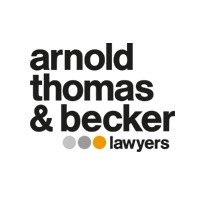Best Premises Liability Lawyers in Craigieburn
Share your needs with us, get contacted by law firms.
Free. Takes 2 min.
List of the best lawyers in Craigieburn, Australia
About Premises Liability Law in Craigieburn, Australia
Premises liability law refers to the set of legal principles that hold property owners and occupants accountable for accidents and injuries that occur on their property. The laws cover both commercial properties (such as shops and restaurants) and residential properties. Included in these laws are various factors such as the legal status of the visitor, the nature of the property, the activity performed on the property and the actions or non-actions of both the visitor and property owner.
Why You May Need a Lawyer
Premises liability cases in Craigieburn, Australia can involve a range of situations including slip and fall incidents, inadequate maintenance of the premises, defective conditions on the property, escalator and elevator accidents, dog bites, swimming pool accidents, amusement park ride injuries, fires, water leaks or flooding, and toxic fumes or chemicals. If you’re injured in any such way, you may need a lawyer to help understand your rights, determine whether you have a valid claim, and help ensure you receive fair compensation for your injuries.
Local Laws Overview
The key laws pertaining to premises liability in Craigieburn fall under the wider umbrella of Australian Tort Law, which covers negligence, and Occupiers' Liability. These laws stipulate that property owners have a duty of care to ensure the safety of any person visiting their premises. If this duty is breached and results in injury, the owner can be held liable. However, the person injured must also show that it was foreseeable that the breach could cause harm.
Frequently Asked Questions
What do I need to prove in a premises liability case?
To win a premises liability case, you usually need to prove that the property owner failed to maintain the property, that this failure resulted in your injury, and that the injury caused you damages.
What types of damages can I recover in premises liability cases?
In most premises liability cases, you can recover damages for medical expenses, lost earnings, future loss of earnings, pain and suffering, and property damage.
What if I am partly to blame for the accident?
Australia follows the principle of comparative negligence. This means that if you are found to be partly responsible for the accident, your damages will be reduced by the percentage of your fault.
How long do I have to file a premises liability claim?
The specific time limit to file a claim, known as the statute of limitations, can vary but it is usually three years from the date of the injury. However, it's best to consult a solicitor as soon as possible to avoid any potential issues.
What if the accident took place in a rented property?
Generally, it is the landlord's responsibility to maintain the property in a safe condition. If your injury was caused by a defect which the landlord should have repaired, you may be able to file a claim against them.
Additional Resources
For additional information, consider checking the Australia's Personal Injury Law page, the Law Handbook online, or the Victoria Law Foundation resources. These can offer thorough insights into Australia's premises liability laws and offer guidance on the next steps.
Next Steps
If you've been injured on someone else's property, the first step is usually to seek immediate medical attention. Document your injuries, where and how the accident happened, and any other relevant information. You should then seek legal advice to understand your rights and potential claims. This might involve discussing your case with a solicitor who specializes in premises liability in Craigieburn and formally filing a claim.
Lawzana helps you find the best lawyers and law firms in Craigieburn through a curated and pre-screened list of qualified legal professionals. Our platform offers rankings and detailed profiles of attorneys and law firms, allowing you to compare based on practice areas, including Premises Liability, experience, and client feedback.
Each profile includes a description of the firm's areas of practice, client reviews, team members and partners, year of establishment, spoken languages, office locations, contact information, social media presence, and any published articles or resources. Most firms on our platform speak English and are experienced in both local and international legal matters.
Get a quote from top-rated law firms in Craigieburn, Australia — quickly, securely, and without unnecessary hassle.
Disclaimer:
The information provided on this page is for general informational purposes only and does not constitute legal advice. While we strive to ensure the accuracy and relevance of the content, legal information may change over time, and interpretations of the law can vary. You should always consult with a qualified legal professional for advice specific to your situation.
We disclaim all liability for actions taken or not taken based on the content of this page. If you believe any information is incorrect or outdated, please contact us, and we will review and update it where appropriate.








